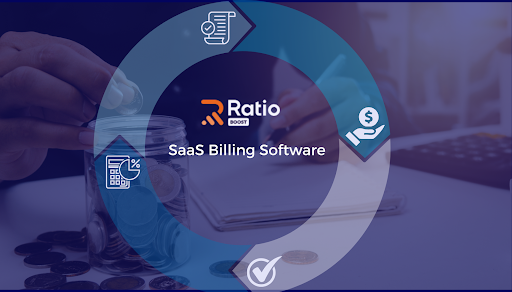Watch our Masterclass |
Reduce Cash Flow & Working Capital Issues Without Pissing Off Your Sales Team!
Recording Available

11 AM PT / 2 PM ET
.png)
SaaS sellers are stuck with slow deals, rigid billing workflows, and Q2C systems that still can’t support the flexible terms buyers now expect. This guide explains why legacy quote-to-cash platforms fall short, what modern solutions must deliver to match today’s SaaS buying behaviors, and how to evaluate the right options for 2026. And if you’re looking to offer flexible payments while still getting full contract value upfront, Ratio Boost adds that missing layer without requiring a rebuild of your entire stack.
.png)
Choosing the right SaaS lending platform is tricky. With options ranging from revenue-based financing to BNPL, you need to weigh costs, risk, speed, and impact on growth. This guide walks you through the key criteria for evaluating SaaS lending platforms and compares six of the top providers in 2026 so you can pick the right partner to scale your B2B SaaS business.
.png)
Most sales proposal tools help you build interactive quotes, collect e-signatures, and track engagement. But deals still stall when buyers want flexible payment terms and finance needs cash upfront. This guide compares leading sales proposal software like Qwilr, PandaDoc and more. It then shows when proposal-only software falls short. Finally, it explains how embedding CPQ, billing, and buyer financing with Ratio Boost turns your proposals into close-ready revenue flows. You collect the full contract value upfront. Your buyer pays over time.
.png)
Most proposal tools speed up quotes but not the close. If your reps still chase approvals, discounts, or delayed payments, the software isn’t helping. This post compares four SaaS-ready platforms built to reduce friction, protect ACV, and turn quotes into cash. Ratio Boost leads with its embedded BNPL and instant seller payouts, so you close faster and collect sooner.
.png)
Manual billing and collections systems can’t keep up as high-volume B2B SaaS teams scale. The result: rising DSO, operational drag, and delayed cash flow. This post breaks down why 2025 is a turning point for billing automation and how teams are streamlining AR workflows without disruption, powered by solutions like Ratio Boost.
.png)
Most subscription billing software does one job: send invoices. But if you're selling flexible terms, managing complex deals, or trying to improve cash flow, that’s not enough. This post looks at five subscription billing software options that go further. They help SaaS teams close faster, collect upfront, and stay in control. One of them is Ratio Boost, built to make billing work for sales, not just finance.
.png)
Most Accounts Receivable (AR) tools help you manage invoicing, automate follow-ups, and reduce DSO. But even the best still make you wait to get paid. That’s why this guide starts with Ratio Boost — the only platform that gives you full contract value upfront while your buyers pay over time. Later, we have also covered the top AR management software for SaaS teams still relying on traditional receivables workflows.
.png)
Stripe Billing is robust, but not every SaaS business needs its full complexity. If you’re dealing with tighter budgets, limited dev resources, or simpler billing needs, this guide explores 6 top Stripe alternatives and 3 Stripe enhancers. We also show how Ratio Boost can extend Stripe’s functionality—no full migration required—for teams scaling smarter.

Stripe has served you well, but as your SaaS deals grow more complex with longer terms, milestone billing, and cash flow constraints, you may be searching for Stripe billing alternatives. In this post, we’ll explore whether you really need to switch or if extending Stripe with tools like Ratio for offering buyer-friendly terms, quote-to-cash automation, and Day-1 cash, is the smarter path forward.

Most B2B SaaS billing tools automate invoicing but not all help you close more deals or collect faster. This guide compares the five best platforms in 2025 and shows why Ratio leads by turning billing into a revenue accelerator with embedded financing and quote-to-cash automation.